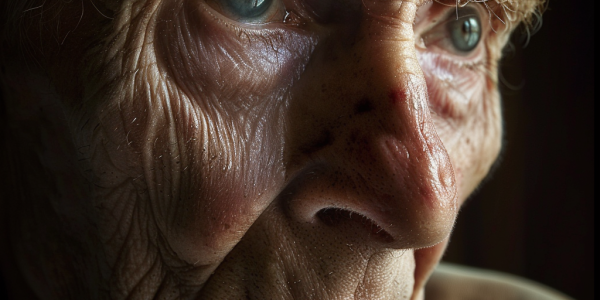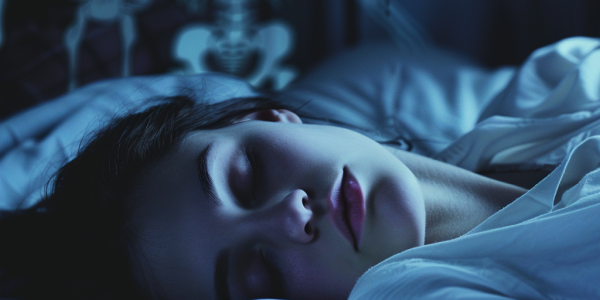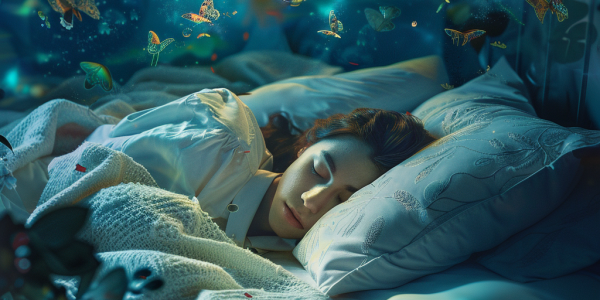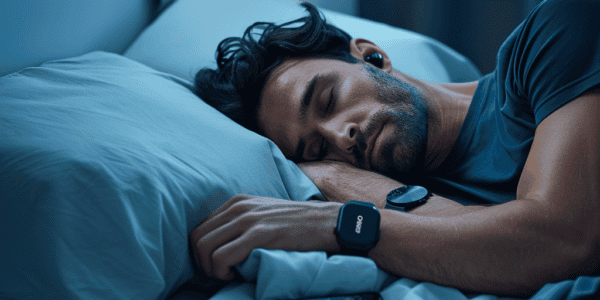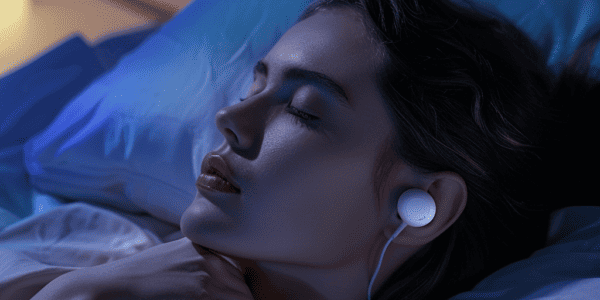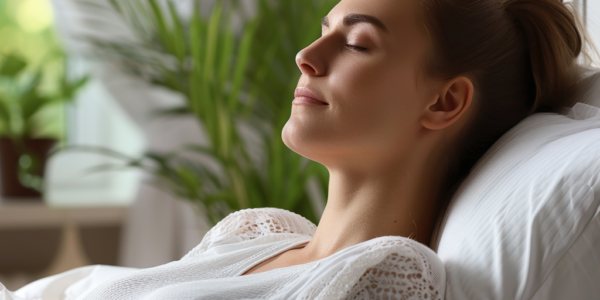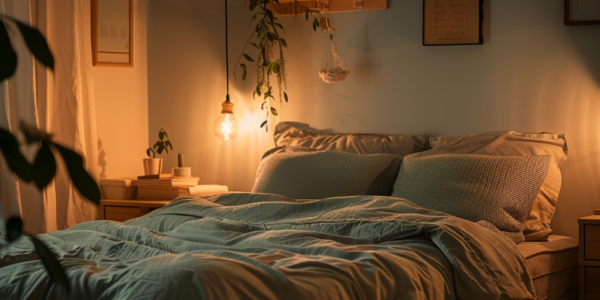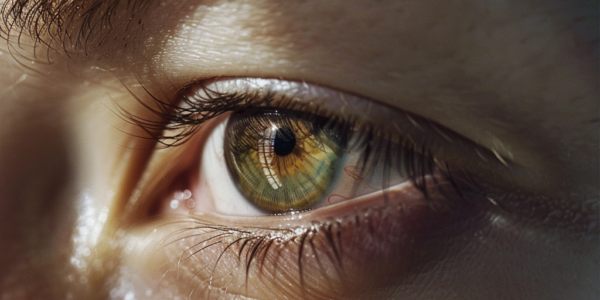Groundbreaking Discovery: First Person Diagnosed with New Sleep Disorder Leads to Scientific Breakthrough
Learn about the groundbreaking discovery of rapid eye movement sleep behavior disorder (RBD) in Donald Dorff, the first person diagnosed with this new sleep disorder. His case led to early detection of Parkinson’s disease and Lewy body dementia, highlighting the crucial connection between sleep disorders and neurodegenerative conditions.
Improving Sleep Quality Through Diet
Discover how certain foods like warm milk, cherries, almonds, whole grains, and leafy greens can potentially improve your sleep quality. Learn how optimizing your diet, along with establishing a bedtime routine and managing stress, can help you achieve a more restful night’s sleep.
Study Links Inadequate Sleep to Bone Loss in Young Women
New research suggests that inadequate sleep may accelerate bone loss, especially in younger women. Dr. Christine Swanson is investigating the connection between insufficient sleep and osteoporosis, exploring whether proper sleep could help prevent this condition. As bone density peaks in early adulthood and declines with age, changes in sleep patterns may play a role in bone health. Genes regulating our internal body clock are present in all bone cells, indicating a potential link between sleep and bone health.
Spring Season Linked to More Vivid Dreams, Study Shows
Discover why your dreams have been more vivid and intense lately. As the spring season disrupts our sleep patterns, leading to decreased sleep duration, many people are experiencing exceptionally lifelike dreams. Learn why the changing light patterns can result in heightened dream activity and why these colorful dreams are a common occurrence during this time of year.
Maximizing Sleep Tracking with Garmin Watches
Utilize the sleep tracking feature on your Garmin watch to improve sleep quality and overall well-being. Learn how Garmin tracks sleep using motion sensors, heart rate monitoring, and algorithms to accurately monitor sleep stages. Set up your Garmin watch for sleep tracking and use the Garmin Connect app for more detailed sleep information. Keep Bluetooth on for accurate sleep tracking.
Anker Introduces Soundcore Sleep A20 Earbuds to Block Snoring and Disturbances
Anker’s latest innovation, the Soundcore Sleep A20 earbuds, are designed to block out snoring and other disturbances, offering a more restful sleep experience. With features like Twin-Seal eartips, extended battery life, and white noise options, these earbuds are set to launch on Kickstarter and Amazon, promising improved sleep quality for users.
Study Shows Vaping Linked to Poor Sleep Quality and Mental Health Issues in Young Adults
University of Surrey researchers conducted a study on the impact of vaping on the sleep quality and mental health of young adults, revealing a significant decline in sleep quality among vape users compared to non-vapers. The study also highlighted the potential link between vaping, feelings of loneliness, and heightened anxiety levels, emphasizing the need for a deeper understanding of the effects of vaping on young individuals.
Stress and Sleep Deprivation Have Synergistic Effect on Women’s Heart Health, Experts Say
Chronic sleep deprivation and stress can have a synergistic effect on heart health, particularly in women. Stress triggers the release of hormones like cortisol and adrenaline, which can raise blood pressure and heart rate, leading to an increased risk of developing cardiovascular diseases. Chronic sleep deprivation can lead to a range of cardiovascular problems, including hypertension, heart attacks, and strokes. Women may be particularly vulnerable to the effects of stress and sleep deprivation due to hormonal fluctuations and the demands of pregnancy and motherhood. Understanding the interconnectedness of these factors can lead to better strategies for preventing and managing cardiovascular diseases.
The Importance of Prioritizing Sleep for Overall Well-Being
Recent shifts in attitudes towards sleep may offer a solution to the dread of losing an hour of sleep with daylight saving time. Science supports the trend of prioritizing a healthy amount of sleep, revealing its importance for creativity, brain function, and overall health. Research suggests that deep sleep acts as a cleansing mechanism for the brain, ridding it of waste products that could contribute to Alzheimer’s disease. Despite this, many Americans fail to meet the recommended seven hours of sleep, putting themselves at risk for various health issues. Eric Olson, a pulmonologist and sleep specialist at the Mayo Clinic, emphasizes the critical role of sleep as one of the pillars of health, alongside diet and exercise. It’s time for individuals to reassess their priorities and recognize the significance of prioritizing sufficient sleep for overall well-being.
Woman Shares Cautionary Tale of Sleeping in Contact Lenses
A cautionary tale about the dangers of sleeping in contact lenses has gone viral on TikTok, as Sara Chambers shares her experience of permanent scarring. Her story serves as a stark reminder of the risks involved, including eye ulcers and potential vision loss. This serves as a crucial reminder to prioritize eye health and adhere to proper hygiene practices for contact lens wearers.

